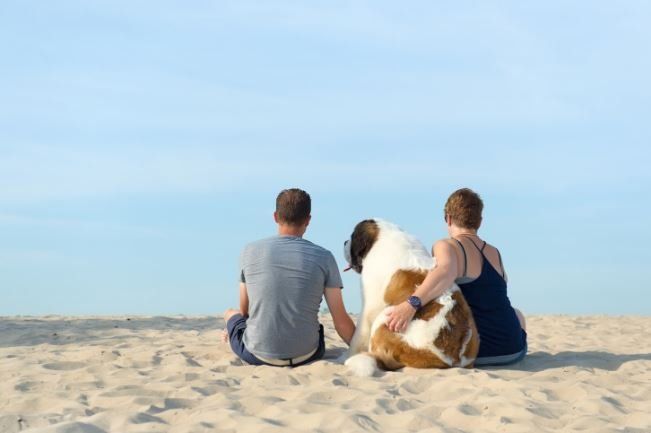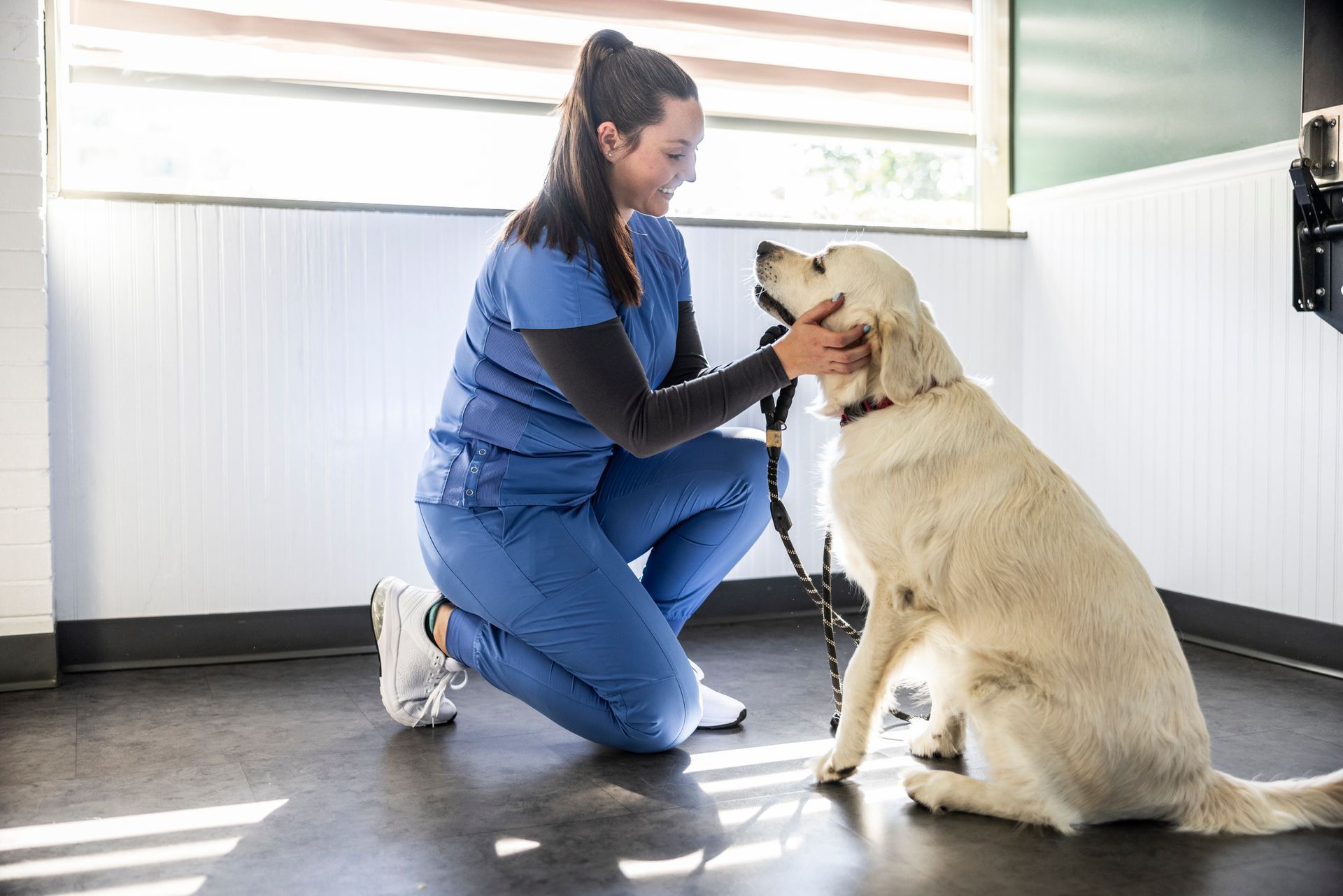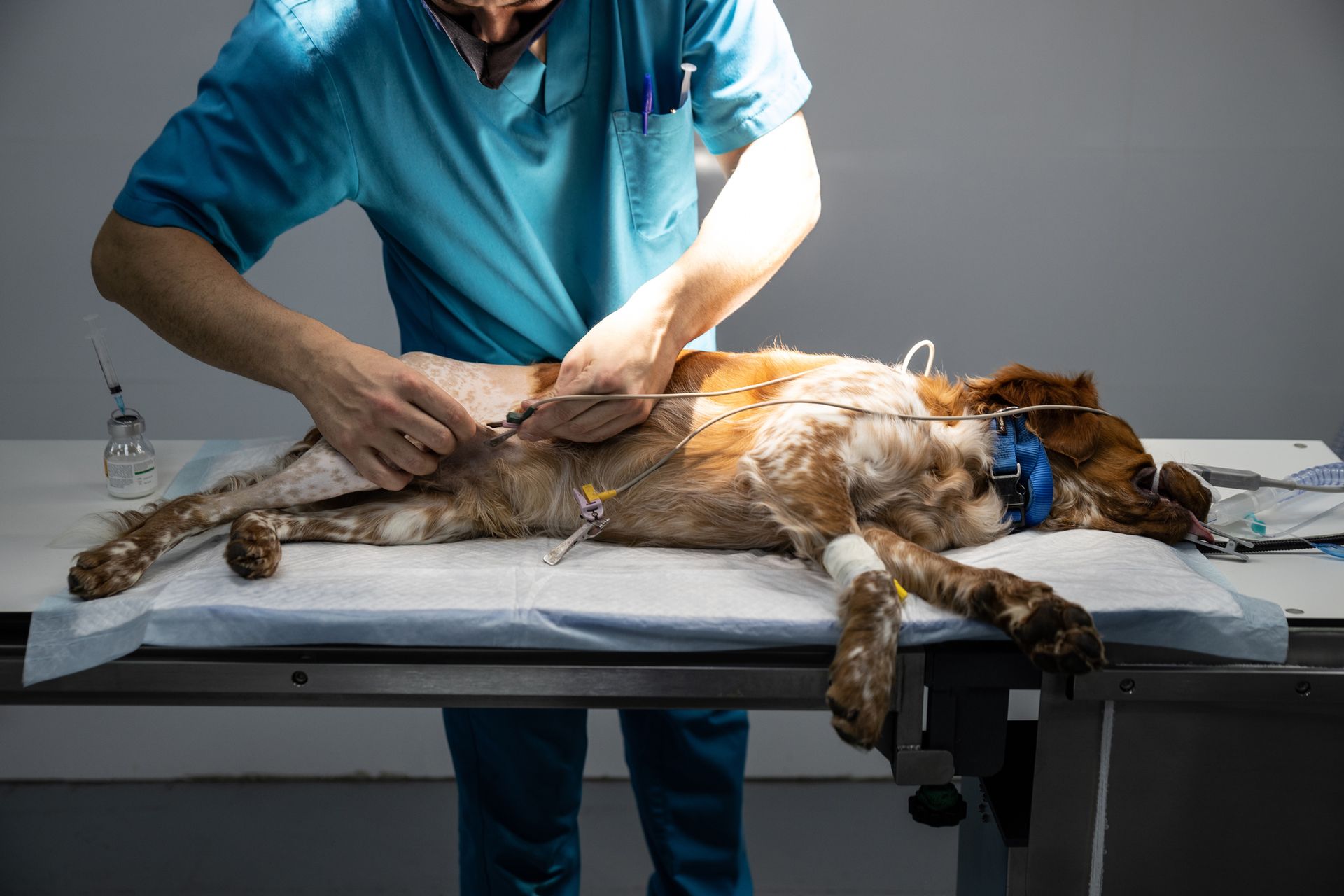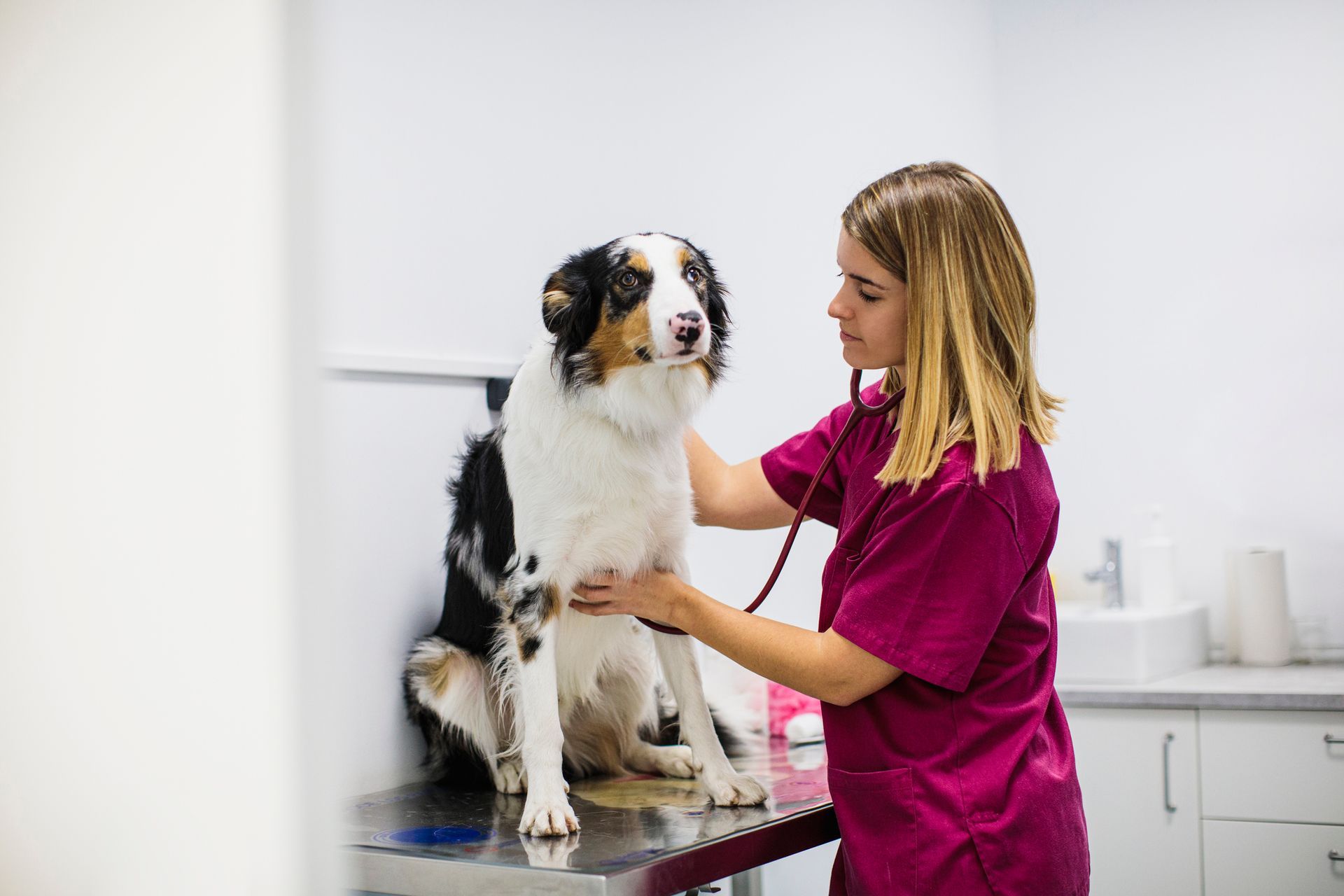What You Need to Know About Dog Summer Vacation Safety
Is summer a time filled with days of fun, sun, and outdoor play for your dog? If your vacation getaway includes the entire family (humans and canines), take a look at what you need to know about dogs and summer safety.
The Car Ride
How can you make a road trip safer for your dog? Even though you can jump in the car and buckle the kids in, traveling with a pet requires extra planning and careful consideration.
The car poses several potential risks for your dog. Between accident-related issues and the summer heat, you need to take precautions before and during your road trip. The top ways to keep your dog safe in the car during a summer vacation include:
- Never leave your dog in a locked car . According to the ASPCA, in 10 minutes, a car's interior temperature can reach 102 degrees Fahrenheit on an 85-degree day. If you need to leave the car during a rest or food break, take your dog with you.
- Don't let your dog roam freely . An unrestrained dog poses a risk to the driver and could sustain serious injury in a crash. Ask the veterinarian for recommendations on the best restraints or car carriers.
- Stop often . You need food, water, and bathroom breaks on a long road trip. Your dog also needs these breaks for health and safety. Stop often to give your dog fresh water, let them stretch their legs, and give them time to relieve themselves outdoors.
The car ride is the first part of your summer vacation. After arriving at your destination, you need to continue similar safety measures. With a few simple steps, you can continue to keep your pet safe and healthy.
The Hotel Room
Does your summer vacation include a hotel room or another similar type of rental? A stay in a strange place can create safety concerns or make your dog feel anxious. To make the most of your hotel room or summer rental with your pet:
- Dog-proof the space . Does your dog chew on cords or get into anything that isn't locked up? Walk through the room, apartment, or other space and remove all potential hazards.
- Keep the space at a comfortable temperature . A hot room can pose a safety issue for your pet. Set the air conditioner at a comfortable temperature and make sure your dog is cool. If your dog pants or seems lethargic, boost the AC.
- Confirm pet policies . If the hotel (or rental) has specific rules and regulations, confirm and follow these policies.
- Bring familiar items . Take your dog's favorite toy, a blanket, or something else that smells like home with you. This can help to calm your dog during their hotel stay.
Bring your pet with you when you leave the room or rental. Even though your pet may do well alone at home, they need your supervision in a new environment.
The Vacation Food
Should you bring your dog's regular food on vacation? Simply stated — yes. Your dog's digestive system is used to their daily dry or wet food. A sudden change could upset their stomach and leave them with a vacation's worth of abdominal issues.
If your dog only eats wet or fresh food, you'll need to provide refrigeration. This may mean toting a cooler along in the car (or on activities and excursions) or asking the hotel or rental to provide a room with a fridge.
While you might enjoy dinner out, a hotdog on the boardwalk, or other vacation treats, your dog shouldn't eat human food. Even though some foods may only cause minor stomach irritation (or no symptoms), others are serious safety hazards. Never feed your dog:
- Chocolate . The cookies and ice cream your kids feast on during your trip aren't healthy for your dog. According to the ASPCA, chocolate contains methylxanthines. These substances can cause diarrhea, vomiting, excessive thirst, panting, tremors, seizures, or worse in dogs.
- Dairy . The chocolate in your child's ice cream isn't the only thing that can upset your dog's sensitive stomach. Dairy can also cause gastrointestinal issues in dogs.
- Coconut . The tropical fruit can upset your dog's stomach. Along with fresh or dried coconut, never give your dog coconut water.
- Macadamia nuts . If your dog eats these nuts, they could experience weakness, tremors, or abdominal issues.
- Xylitol . This sweetener substitute can increase your dog's insulin levels and cause elevated liver enzymes or liver failure. Xylitol is commonly found in gums, candy, and mints.
Along with foods that present known hazards to pets, never feed your dog leftovers that have sat outside or in a hot car. These are breeding grounds for bacteria and cause serious GI issues in a dog. Throw away your leftovers or don't bring them with you. Your curious canine could get into a tasty-smelling bag or box of food.
Does your dog need a pre-vacation vet visit? Contact South Seattle Veterinary Hospital for more information.











